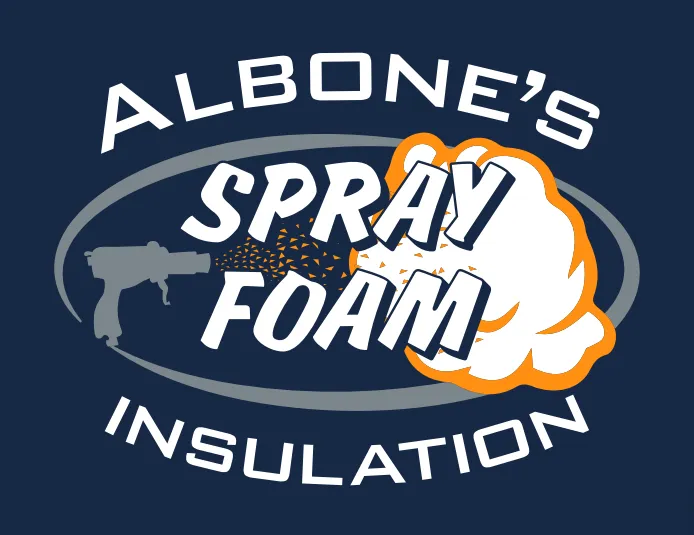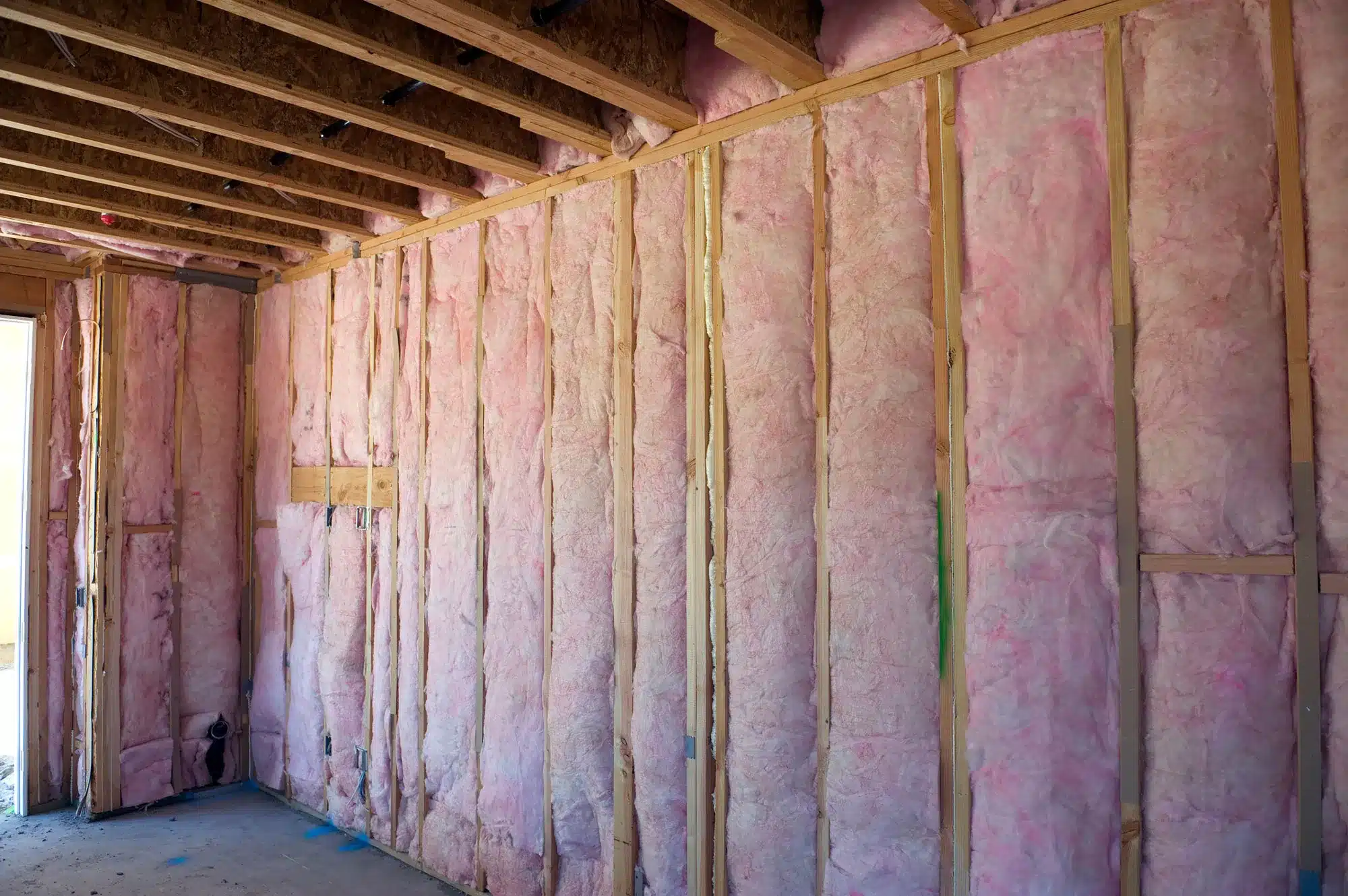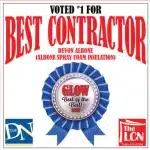Fiberglass insulation has been a popular choice for many homeowners and builders in Rochester, NY, and beyond for decades. This insulation solution is well known for its cost-effectiveness and efficiency in regulating indoor temperature. However, deciding if fiberglass is the right fit for your home or business requires a deeper understanding of its advantages and limitations, especially considering the unique climate of the Rochester area. In this post, we’ll break down the pros and cons of fiberglass insulation to help you make an informed decision.
Understanding Fiberglass Insulation
Fiberglass insulation is made of fine glass fibers that are either spun into batts (pre-cut sheets) or blown into spaces as loose-fill insulation. It’s commonly used in walls, attics, basements, and crawl spaces to help control temperatures and reduce energy consumption. Whether you’re considering fiberglass batt insulation or blown-in fiberglass insulation for your Rochester property, each comes with its own set of features to consider.
The two primary types of fiberglass insulation are:
- Fiberglass Batt Insulation: Comes in large pre-cut rolls and is installed between wall studs, joists, and rafters.
- Blown-in Fiberglass Insulation: Loose-fill fiberglass that is blown into attics or other spaces, ideal for areas with uneven surfaces.
Climate Considerations in Rochester, NY
Rochester’s climate presents a mix of warm, humid summers and cold, snowy winters. Efficient insulation is key to maintaining a comfortable living or working environment while also reducing energy expenses year-round. For this reason, it’s crucial to choose insulation that performs well in both hot and cold conditions—which brings us to the evaluation of fiberglass insulation.
The Pros of Fiberglass Insulation
Fiberglass insulation offers a variety of advantages, particularly in climates like that of Rochester. Let’s explore some of the top benefits of fiberglass insulation:
1. Affordability
Fiberglass insulation is one of the most cost-effective options on the market today. It has a lower upfront cost compared to other insulation types like spray foam, which makes it attractive for budget-conscious homeowners and developers.
2. Good Thermal Performance
With an R-value ranging from 2.2 to 4.3 per inch, fiberglass insulation in Rochester, NY offers good thermal resistance. This means it helps reduce heat loss in the winter and keeps indoor spaces cooler during the summer. Rochester’s freezing winters can lead to high heating costs, and fiberglass insulation helps reduce these expenses by slowing down heat transfer.
3. Ease of Installation
Fiberglass batt insulation can be easily installed by either a professional insulation contractor or, in some cases, DIY enthusiasts. Blown-in fiberglass insulation, on the other hand, requires specialized equipment but is equally quick to install.
4. Fire-Resistance
Fiberglass is naturally fire-resistant, which enhances the overall safety of your home. Unlike some insulation materials, fiberglass doesn’t burn, melt, or contribute significantly to the spread of flames.
5. Soundproofing Qualities
In addition to temperature control, fiberglass insulation also provides noise-reduction benefits. This is helpful for both residential and commercial properties, especially if your property is near busy roads or other noisy environments.
6. Environmentally Friendly
Many fiberglass products contain recycled materials, which makes them more environmentally friendly than some other types of insulation. Choosing insulation with recycled content contributes to reducing your overall carbon footprint.
The Cons of Fiberglass Insulation
While fiberglass insulation is a popular choice, it does come with some downsides that are worth considering, especially given Rochester’s climate and housing needs:
1. Moisture Issues
Fiberglass is highly susceptible to moisture, which can pose a major issue during Rochester’s humid summers or if your home has any roof or foundation leaks. When fiberglass gets wet, its insulating properties decrease significantly, and it may encourage mold growth. Proper vapor barriers are needed to prevent moisture problems.
2. Air Gaps and Potential Inefficiencies
While batt fiberglass insulation can be effective, improper installation can lead to air gaps. These gaps allow conditioned air to escape, reducing overall efficiency. This is particularly concerning during winter, when cold air leaks can increase heating costs.
3. Health Risks During Installation
Fiberglass particles can irritate the skin, eyes, and respiratory system, so proper safety precautions are a must during installation. The material can be an irritant if not handled properly, which is why professional installation is often recommended.
4. Not Suitable for Tight Spaces
Fiberglass batts are not ideal for tight or oddly shaped areas. Spray foam insulation may be a better option for these areas because of its ability to expand and seal gaps and cracks. Blown-in fiberglass can help address some of these gaps, but it doesn’t provide the same complete coverage that spray foam can.
5. Potential Degradation Over Time
Fiberglass insulation can settle or degrade over time, leading to a reduction in thermal performance. This can be especially problematic for older homes in Rochester where insulation has not been updated in many years. Degraded insulation means reduced effectiveness and higher energy bills.
Fiberglass Insulation vs. Spray Foam: Which Is Better?
If you’re weighing fiberglass insulation against other options, spray foam is often considered the top alternative, especially for achieving the best energy efficiency in Rochester’s harsh climate. Here’s a brief comparison:
- Spray Foam Insulation provides superior thermal performance and air sealing compared to fiberglass. Spray foam expands to fill all gaps and cracks, reducing air leakage and providing higher R-values per inch.
- Fiberglass Insulation is more affordable initially, but may need to be replaced or updated more frequently than spray foam. While fiberglass can be effective, it lacks the same level of efficiency in areas prone to drafts.
Where Fiberglass Insulation Works Best
Fiberglass insulation is ideal for certain parts of a building, especially when:
- Cost Control is a major factor. Fiberglass is a cost-effective choice for large-scale insulation projects where budget considerations are a priority.
- Straightforward Spaces are being insulated. Batt insulation is easiest to install in attics, floors, and walls without too many obstacles.
- Less Critical Areas like garages, storage rooms, or basements where temperature control is less crucial.
When to Avoid Fiberglass Insulation
Fiberglass may not be the best option if:
- Moisture Problems are already an issue in your property. Basements and crawl spaces that experience flooding may benefit more from closed-cell spray foam insulation, which has superior resistance to moisture.
- Air Sealing is a major concern. Fiberglass does not provide a complete air seal and will need additional vapor barriers or sealants to prevent leaks.
Albone’s Spray Foam Can Help
Whether fiberglass or spray foam, insulation is a key factor in making Rochester homes comfortable and energy-efficient. At Albone’s Spray Foam, we provide expert insulation services tailored to your needs. We evaluate your property’s unique requirements and offer the best solution—whether it’s fiberglass batt, blown-in insulation, or spray foam—to ensure optimal energy efficiency.
With our specialized expertise in insulation, we can help you decide which insulation type suits your specific situation. Our focus is always on quality, affordability, and ensuring your comfort in all seasons.
Call Us for Your Insulation Needs in Rochester, NY
Choosing the right insulation can be overwhelming, but you don’t have to make the decision alone. At Albone’s Spray Foam, we’re here to answer your questions and guide you to the best insulation solution for your needs. Ready to improve your property’s energy efficiency and comfort?
Contact us today at (585) 560-1369, visit our website at https://albonesprayfoam.com/, or email us at [email protected] to learn more about how we can help insulate your Rochester, NY property.
Frequently Asked Questions
1. Is fiberglass insulation safe for my home?
Yes, when installed properly, fiberglass insulation is safe for homes and businesses.
2. Does fiberglass insulation reduce noise?
Yes, fiberglass insulation has soundproofing qualities that can help reduce noise between rooms.
3. Can fiberglass insulation get wet?
Fiberglass insulation loses efficiency if it gets wet, and it may encourage mold growth.
4. How long does fiberglass insulation last?
Fiberglass insulation can last 20-30 years, but it may degrade over time and require replacement.




